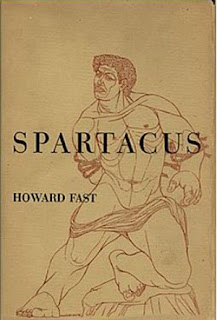Spartacus
A universal-International film by Stanley Kubrick. At the time of its first release in 1960, “Spartacus” was hailed as the first intellectual epic since the silent days and the first Roman or Biblical saga to deal with ideas as well as spectacle. The notion of being forced to fight for entertainment leads Spartacus to head a slave revolt that eventually spreads over half of Italy.
The film won four
Academy Awards with Best Supporting Actor for Peter Ustinov, Best
Cinematography, Best Art Direction, and Best Costume Design. It became the
biggest moneymaker in Universal Studios history until it was surpassed
by Airport (1970).
In 2017, it was selected for preservation in the United States National Film Registry by the Library of Congress as being "culturally, historically, or aesthetically significant."
Added Note
The
development of Spartacus was partly instigated by Kirk
Douglas's failure to win the title role in William Wyler's Ben-Hur. Douglas had worked with Wyler before in Detective Story and was disappointed
when Wyler chose Charlton Heston. Instead, Douglas read Howard Fast's
novel, Spartacus, and was impressed enough to purchase an option on
the book with his own finances. Universal Studios eventually agreed to finance
the film after Douglas persuaded Laurence Olivier, Charles Laughton, and Peter Ustinov
to act in it.

